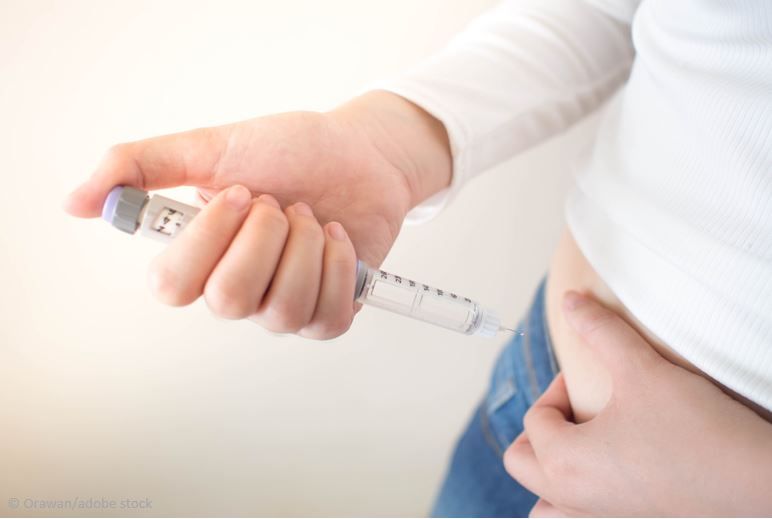- Clinical Technology
- Adult Immunization
- Hepatology
- Pediatric Immunization
- Screening
- Psychiatry
- Allergy
- Women's Health
- Cardiology
- Pediatrics
- Dermatology
- Endocrinology
- Pain Management
- Gastroenterology
- Infectious Disease
- Obesity Medicine
- Rheumatology
- Nephrology
- Neurology
- Pulmonology
Early Diabetes Diagnosis in Women Associated with Early Age at Menopause in Large Canadian Cohort

The age at which a woman is diagnosed with either type 1 or type 2 diabetes (T1D, T2D) may be a predictor of the age at which she will enter menopause, with a diabetes diagnosis earlier in life, ie, before age 40 years, associated with earlier onset of natural menopause and the same association observed for later-age diabetes diagnosis and later menopause onset.
The findings, presented recently at the North American Menopause Society (NAMS) 2022 Annual Meeting, may contribute to a better understanding of the "long-term impacts of diabetes on the human body and the reproductive system,” said lead investigator Vrati Mehra, MSc, of the University of Toronto, in a NAMS statement.
Rates of T1D, T2D, and gestational diabetes continue to rise worldwide leading to a growing number of women who will spend a large proportion of their reproductive lives living with the chronic metabolic disease, write Mehra and colleagues in the study abstract. As context for their research the team cites previous studies that have evaluated the association between diabetes and age at natural menopause using cross-sectional analysis or have assessed the risk for developing postmenopausal diabetes. There is minimal evidence, according to the authors, for the effects of premenopausal onset of diabetes on age of menopause.
Their contribution to the literature is a retrospective cohort study based on data from the Canadian Longitudinal Study on Aging (CLSA), a national longitudinal study of adult development and aging that is following approximately 50 000 Canadian women who were between 45 and 85 years of age when recruited. The study will collect data on biological, medical, psychological, social, lifestyle, and economic aspects of participants' lives for 20 years (until 2033) or until death.
Rates of T1D, T2D, and gestational diabetes continue to rise worldwide leading to a growing number of women who will spend a large proportion of their reproductive lives living with the chronic metabolic disease.
The investigator's final sample numbered 11 436 and was weighted to represent nearly 1.5 Canadian women aged 45 to 85 years. The cohort had a median age of 52 years at menopause. Analyses included Kaplan-Meier cumulative survivorship estimates to calculate median age at menopause according to diabetes subtypes. Multivariable Cox regression models were used to estimate associations between different types of diabetes and age at menopause, adjusting for sociodemographic, lifestyle, and premenopausal clinical factors.
FINDINGS
Mehra et al found that when compared to participants without a diagnosis of diabetes, diagnosis of T1D before the age of 30 years and a diagnosis of T2D between ages 30-39 years both were associated with earlier age at natural menopause:
- T1D <30: HR, 1.55, 95% CI 1.05-2.29
- T2D 30-39: HR, 1.82, 95% CI, 1.12-2.95
They report that later age at diagnosis of T2D (>50 years) was associated with a later age at natural menopause (HR, 0.39 [95% CI, 0.27-0.56]). There was no significant association observed between gestational diabetes and age at menopause, according to the study abstract.
“This research adds to the growing evidence relative to the collective toll diabetes takes on the human body," said Stephanie Faubion, MD, NAMS medical director, in the NAMS statement. "In this case, it shows that young women living with a diagnosis of diabetes are more susceptible to accelerated ovarian aging and early menopause.”
The authors hope that the findings will help focus future research on long-term consequences of diabetes on womens' overall health and particularly on reproductive health across the lifespan.
Reference: Mehra V, Costanian C, McCague H, et al. The association between diabetes type, age of onset, and age at natural menopause: a retrospective cohort study using the Canadian Longitudinal Study on Aging. Abstract presented at North American Menopause Society 2022 Annual Meeting; October 12-15, 2022; Atlanta, GA. Thursday concurrent Session #1 S-6.
